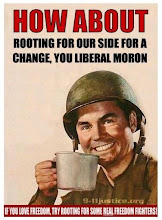Hawaii's universal health-care system, which insures 96.5 percent of the state's residents and costs less than health care in other states and Canada, could serve as a national model, health officials from Hawaii say in a new report.
The report also says that requiring employers to provide insurance for employees who work at least 20 hours a week has not bankrupted small businesses, as some feared when the plan went into effect 19 years ago.
"In fact, some indirect indicators suggest that the effect may be positive," said the report, to be published on Wednesday in The Journal of the American Medical Association.
Unemployment since 1974 has markedly declined in Hawaii, where 97 percent of businesses have fewer than 100 workers, the report said. By 1990, new-business start-ups per capita had reached the third highest rate in the nation, it said. Near Top in Health Status
Only 3.5 percent of Hawaii's 1.1 million residents lacked health insurance in 1989, compared with 11.7 percent who lacked hospital coverage in 1971 and 17.2 percent who lacked physician coverage then, the report said.
Hawaiians rank at or near the top in health status compared with other Americans, the health officials said.
"We believe a considerable amount of this success is attributable to direct and indirect effects of Hawaii's employer mandate," they said, adding that the state's approach receive serious attention as a task force headed by Hillary Rodham Clinton considers health-care changes.
Hawaii's health-care system emphasizes prevention and early treatment. Without rationing or a ceiling on costs, Hawaiians are hospitalized only 90 percent as often as other Americans, undergo surgery only 61 percent as often and visit emergency rooms only 48 percent as often, the report said. Comparing Heat-Care Costs
Health-care costs, including government expenses for Medicare and Medicaid, were only 7.8 percent of the gross state product in Hawaii, compared with 11.2 percent of the gross national product for the United States, a 1992 study found. The figure was 8.6 percent in Canada, 9 percent in Sweden, 8.5 percent in the Netherlands and 8.2 percent in Germany, the report said.
The health officials dismissed the argument that Hawaii was a special case because of its mild climate and a healthy genetic stock of Asians and Pacific Islanders. Rather, they said, Caucasians have the best relative health among racial groups, and the state's reduced health-care expenses from lack of cold weather are offset by higher rates of skin cancer and ocean injuries.
Because Hawaii is a gateway for immigration from Asia and the Pacific islands, it has the nation's second highest rate of tuberculosis and ranks among the top 10 states in new AIDS infections, the officials said.
Hawaii is seeking Federal approval to combine its Medicaid and state insurance programs for those who do not qualify under Medicaid or the employer mandate. Gov. John Waihee 3d, a Democrat, hopes that will save even more.
But Walter Zelman, an adviser to the Clinton Administration's task force on health care, said in a telephone interview from Washington that Hawaii's system was not directly applicable to other states.
Hawaii is in the middle of the Pacific Ocean, he noted, so businesses that dislike its laws cannot easily move. And Hawaii's two biggest insurers are not-for-profit companies, so the state is free of some "predatory" practices found elsewhere, he said.
"There's a lot to be learned from Hawaii," Mr. Zelman added, "but it may not provide the whole answer."
This article is dated from 1993. Last week, this system was scrapped because too many people dropped their paid coverage for this socialized medical system. Hmmm 15 years of socialized medicine before the whole thing became pear shaped? Thankfully the US never adopted Slick Willie's health care plan back in 1993.










No comments:
Post a Comment